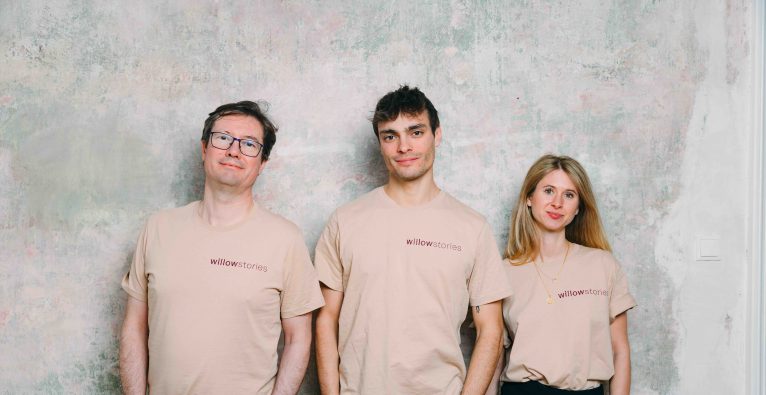✨ AI Kontextualisierung
Um zu verstehen, was vor uns liegt, muss man die „Breakthroughs“ in Betracht ziehen, die den Aufstieg der generativen KI (GenAI) ermöglicht haben. ChatGPT, GitHub Copilot, Stable Diffusion und andere generative KI-Tools, die derzeit die Aufmerksamkeit der Öffentlichkeit auf sich ziehen, sind das Ergebnis enormer Investitionen in den letzten Jahren, die zum Ziel hatten, maschinelles Lernen und Deep Learning voranzutreiben.
GenAI anders als AlphaGo
Diese Investitionen bilden die Grundlage für KI-Anwendungen, die in viele der Produkte und Dienstleistungen eingebettet sind und die wir tagtäglich nutzen. Aber da KI unser Leben schrittweise durchdrungen hat – von der Technologie, die die Smartphones antreibt, über autonom fahrende Autos bis hin zu den Werkzeugen, mit denen Einzelhändler:innen ihre Kunden betreuen – waren bisherige Fortschritte fast unmerklich.
Meilensteine wie der Sieg von AlphaGo, einem von DeepMind entwickelten KI-basierten Programm, gegen einen Go-Weltmeister im Jahr 2016 wurden gefeiert, verschwanden dann aber schnell wieder aus dem Bewusstsein der Öffentlichkeit.
ChatGPT und seine Konkurrenten indes haben die Fantasie der Menschen auf der ganzen Welt in einer Weise beflügelt, wie es AlphaGo nicht getan hat, und zwar dank ihrer breiten Nutzbarkeit – fast jeder kann damit kommunizieren und kreativ sein – sowie ihrer bemerkenswerten Fähigkeit, ein Gespräch mit Nutzern zu führen.
Routine und Kunst
Neueste generativen KI-Anwendungen können eine Reihe von Routineaufgaben ausführen, wie z. B. die Reorganisation und Klassifizierung von Daten. Aber es ist ihre Fähigkeit, Texte zu schreiben, Musik zu komponieren und digitale Kunst zu schaffen, die für Schlagzeilen sorgt und Verbraucher und Haushalte dazu bringt, selbst zu experimentieren. Dies hat dazu geführt, dass sich ein breiterer Kreis von Akteur:innen mit den Auswirkungen der generativen KI auf Wirtschaft und Gesellschaft auseinandersetzt.
So wie auch das McKinsey Global Institute (MGI), das die Möglichkeiten von GenAI in der Studie „The economic potential of generative AI“ durchleuchtet hat. Und herausfand, dass Generative KI einen jährlichen Produktivitätszuwachs von 2,6 bis 4,4 Billionen US-Dollar ermöglichen kann (zum Vergleich: Die Größenordnung des Bruttoinlandsprodukts des Vereinigten Königreichs im Jahr 2021 betrug rund 3,1 Billionen US-Dollar).
Steigerung von 10 bis 40 Prozent
Im Vergleich zu bisherigen Ausprägungen von Künstlicher Intelligenz und Analytik würde dies eine zusätzliche Steigerung um zehn bis 40 Prozent bedeuten. Die tatsächlichen Auswirkungen könnten sogar höher ausfallen, würde GenAI in Software wie etwa Textverarbeitungsprogramme oder Chatbots integriert, so die Erkenntnis.
„In Verbindung mit anderen Technologien haben die derzeitigen Möglichkeiten von GenAI das Potenzial, jene Arbeitstätigkeiten zu automatisieren, die heute 60 bis 70 Prozent der Arbeitszeit von Arbeitnehmenden in Anspruch nehmen. Dadurch werden andere Tätigkeiten in den Fokus der Mitarbeiter:innen rücken und ein neues Bild von Produktivität etablieren“, erklärt Martin Wrulich, Senior Partner und Managing Director des Wiener McKinsey-Büros.
Etwa 75 Prozent des geschätzten Wertes würden durch GenAI in den Bereichen Kundenservice, Marketing und Vertrieb, Softwareentwicklung sowie Forschung und Entwicklung geschaffen – und damit in Feldern, die stark wissens- und menschenbasiert seien.
GenAI in verschiedenen Branchen
Eine Analyse von 63 Anwendungsfällen in 16 Geschäftsbereichen hat zudem spezifische Herausforderungen identifiziert, die durch diese Technologie gelöst werden können. Beispiele sind die Unterstützung der Interaktion mit Kunden, die Erstellung von Inhalten und die autonome Generierung von Softwarecode auf der Grundlage von Anweisungen in natürlicher Sprache.
Branchen wie Finanzdienstleistungen, Hightech, Medien und Biowissenschaften könnten im Vergleich jedoch den größten Nutzen aus GenAI ziehen: „So könnte der Einsatz von GenAI im Bankensektor jährlich einen Wertzuwachs von 200 bis 340 Milliarden Dollar erzielen. Auch im Einzelhandel und in der Konsumgüterindustrie ist das Potenzial mit zusätzlichen 400 bis 660 Milliarden Dollar pro Jahr beträchtlich“, heißt es in der Studie.
„Die zunehmende Entwicklung von GenAI eröffnet eine neue Ära der technologischen Innovation. GenAI ist ein Werkzeug, um die Produktivität zu steigern und das globale Wirtschaftswachstum voranzutreiben“, sagt Gérard Richter, Senior Partner im Frankfurter Büro von McKinsey und Leiter von McKinsey Digital in Deutschland und Europa.
Anmerkung: Für die Bewertung des ökonomischen Potenzials von GenAI haben die Studienautor:innen neben der Analyse möglicher Anwendungsszenarien auch über 100 Branchenexperten befragt.
Anhand der globalen Wirtschaftsstruktur im Jahr 2022 wurde dann der potenzielle jährliche Wert dieser GenAI-Anwendungsfälle errechnet. Dabei handelt es sich um eine konservative Abschätzung: Unberücksichtigt bleibt das Wertschöpfungspotenzial, sollte GenAI völlig neue Produkt- oder Dienstleistungskategorien hervorbringen.
Um zu ermitteln, welche Berufe, Tätigkeiten und Qualifikationslevel am meisten Potenzial haben, hat die Studie 850 Berufe (Verkäufer, Lehrer, Krankenpfleger) sowie 2.100 konkrete Tätigkeiten innerhalb dieser Berufe (Begrüßung von Kunden, Reinigungstätigkeiten, Zahlungen) analysiert.
GenAI fördert Arbeitsproduktivität in Hochlohnländern wie Österreich
Ein weiteres Studienergebnis ist, dass die aktuelle Entwicklung von GenAI die Veränderungen in der Arbeitswelt beschleunigen werde. Die Technologie habe das Potenzial, Arbeitsschritte zu automatisieren, Menschen von Routinearbeiten zu entlasten und so neue Freiräume für kreative Arbeit und Innovation zu schaffen.
Damit wäre es auch möglich, so die Studie, das insgesamt verlangsamte Produktivitätswachstum der letzten Jahrzehnte auszugleichen. Die Automatisierung von Arbeitstätigkeiten durch KI und weiteren Technologien der globalen Wirtschaft könne zudem von 2023 bis 2040 einen jährlichen Produktivitätsschub von 0,2 bis 3,3 Prozent erreichen.
„GenAI allein könnte zu einem Wachstum von 0,1 bis 0,6 Prozent beitragen. Dies setzt voraus, dass die von der Technologie betroffenen Personen in Arbeitsbereiche wechseln, die zumindest ihrem aktuellen Produktivitätsniveau entsprechen“, heißt es konkret in der Untersuchung.
Hochqualifizierte Arbeitsbereiche im Fokus
Anders als bei bisherigen Technologiesprüngen würden bei GenAI im Kern nicht physische Prozesse im Mittelpunkt stehen, sondern die komplexen, hochqualifizierten und hochbezahlten Arbeitsbereiche. Das größte Automatisierungspotenzial erfahren Arbeitsbereiche, die einen Bachelor- oder Masterabschluss und eine Promotion erfordern.
„Das Bild, dass nur manuelle Tätigkeiten automatisiert werden, dreht sich gerade. GenAI könnte potenziell den Unterschied bei der Einführung und Nutzung von Automatisierungstechnologien zwischen Gruppen mit hohen und niedrigen Löhnen einebnen“, präzisiert Christoph Sporleder, Partner im Frankfurter McKinsey-Büro und einer der Leiter von QuantumBlack in Deutschland, der KI-Beratung von McKinsey & Company.
Ein Blick auf konkrete Berufsfelder zeigt vor allem für Lehrberufe (38 Prozentpunkte) ein signifikantes Automatisierungspotenzial durch GenAI. Mit den verbesserten Fähigkeiten der generativen KI im Bereich der natürlichen Sprache könnte z.B. die Entwicklung von Arbeitsaufgaben von Maschinen übernommen werden.
„Vielleicht zunächst nur zur Erstellung eines ersten Entwurfs, der von den Lehrkräften bearbeitet wird, aber perspektivisch auch mit weitaus weniger menschlichem Bearbeitungsaufwand. Dadurch könnten die Lehrkräfte mehr Zeit für andere Tätigkeiten aufwenden, z. B. für die Leitung von Klassendiskussionen oder die Betreuung von Schülern, die zusätzliche Unterstützung benötigen. Besonders hohes Automatisierungspotenzial besteht zudem bei IT-Berufen (31 Prozentpunkte) gefolgt von Kreativberufen (24 Prozent). Demgegenüber wird für den physisch ausgerichteten Beruf des Bauarbeiters ein Potenzial von lediglich fünf Prozentpunkten ermittelt“, so in der Studie weiter.
Risiken von GenAI
Abschließend weisen die Forscher:innen der Studie auf die Risiken der GenAI hin. Und appellieren, sie von Anfang an mitzudenken und aktiv anzugehen. Folgende Punkte machen sie dabei aus.
Fairness: Modelle können aufgrund von unvollkommenen Trainingsdaten oder Entscheidungen der Ingenieure, die die Modelle entwickeln, zu algorithmischen Verzerrungen führen.
Geistiges Eigentum (IP): Trainingsdaten und Modellergebnisse können erhebliche IP-Risiken mit sich bringen, einschließlich der Verletzung von urheberrechtlich geschützten, markenrechtlich geschützten, patentierten oder anderweitig rechtlich geschützten Materialien. Selbst bei der Verwendung eines generativen KI-Tools eines Anbieters müssen Unternehmen verstehen, welche Daten in das Training eingeflossen sind und wie sie in den Tool-Outputs verwendet werden.
Datenschutz: Datenschutzbedenken könnten aufkommen, wenn Benutzer Informationen eingeben, die später in den Modellergebnissen in einer Form auftauchen, die Personen identifizierbar macht. Generative KI könnte auch dazu verwendet werden, bösartige Inhalte wie Desinformationen, Deepfakes und Hassreden zu erstellen und zu verbreiten.
Sicherheit: Generative KI kann von böswilligen Akteuren eingesetzt werden, um die Raffinesse und Geschwindigkeit von Cyberangriffen zu erhöhen. Sie kann auch manipuliert werden, um bösartige Ergebnisse zu liefern. Mit einer Technik namens Prompt Injection gibt ein Dritter einem Modell neue Anweisungen, die das Modell dazu bringen, eine Ausgabe zu liefern, die vom Hersteller des Modells und dem Endbenutzer nicht beabsichtigt war.
Erklärbarkeit: Die generative KI stützt sich auf neuronale Netze mit Milliarden von Parametern, was unsere Fähigkeit, zu erklären, wie eine bestimmte Antwort zustande kommt, infrage stellt.
Verlässlichkeit: Modelle können auf dieselben Aufforderungen unterschiedliche Antworten geben, was es dem Benutzer erschwert, die Genauigkeit und Zuverlässigkeit der Ergebnisse zu beurteilen.
Organisatorische Auswirkungen: Generative KI kann erhebliche Auswirkungen auf die Belegschaft haben, und die Auswirkungen auf bestimmte Gruppen und lokale Gemeinschaften könnten unverhältnismäßig negativ sein.
Soziale und ökologische Auswirkungen: Die Entwicklung und das Training von Basismodellen kann schädliche soziale und ökologische Folgen haben, einschließlich eines Anstiegs der Kohlendioxidemissionen (beispielsweise kann das Training eines großen Sprachmodells etwa 315 Tonnen Kohlendioxid ausstoßen).





